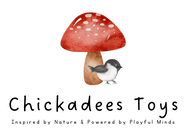Sensory play has so many benefits in early childhood! One of the most overlooked, in my opinion, is speech and language development. Whether learning to use a single word or learning to build sentences and vocabulary, sensory play is a beneficial tool for speech.

The Science behind Speech and Sensory Play:
Sensory exploration stimulates all senses at the same time.
Touch (Tactile)
Hearing (Audition)
Seeing (Visual)
Tasting (Gustatory)
Smelling (Olfactory)
Equilibrium\Balance (Vestibular)
Force\Self Movement (Proprioception)
And all these senses together boost many areas of development in young children. Engaging the senses ignites little fireworks (or synapses) in the brain’s pathways, causing connections and physical growth in the brain. These connections help children to complete more complex tasks, skills, and functions. Using a variety of senses at once allows children to develop language, cognitive, motor, social and imaginative skills.
It’s interesting to note that Sensory exploration significantly impacts language and speaking domains of child development.
Note: Speech and language development is not only important for toddlers and children with speech delays. Spoken language is a crucial foundation that requires learning and practice up to age 6. Children need fluent speech and should have a broad understanding of language before ever attempting to learn the alphabet, write, or read.
What's at the Core of Early Speech Development?
Receptive Language SkillsReceptive language is at the core of language development. Receptive language is:
The ability of a child to understand the spoken language. It involves how well a child can identify everything in and happening in the world around him, his ability to follow commands, and understand questions.
Sensory activities can all be excellent opportunities to develop speech while simply playing and talking to your Little.
Areas of speech we can work on at home:
- Vocabulary and Descriptive Words
- Re-casting
- Action Words
- Focus Words
- Storytelling
- Inference and Problem Solving
- Memory Enhancement

I hope you found some of these tips helpful! I was probably more wordy than necessary, but I enjoy the "why's." It's really not difficult to encourage language development - Play, Have Fun, and Talk to your Little.
After implementing regular sensory play into my preschool classroom, I saw improved speech in all children.
And let’s be honest, anything that makes learning fun is a win!
Ms. Becky
Don't Forget to Play Today, Chickadee!



1 comentario
Enjoyed reading this, I work as an English as an additional language teacher in an international school and have been using sensory activities as provocations for developing English language. I am amazed at how all ages, all the way up to 12 year olds just gravitate towards the sensory activities and are so stimulated by them. Thank you.